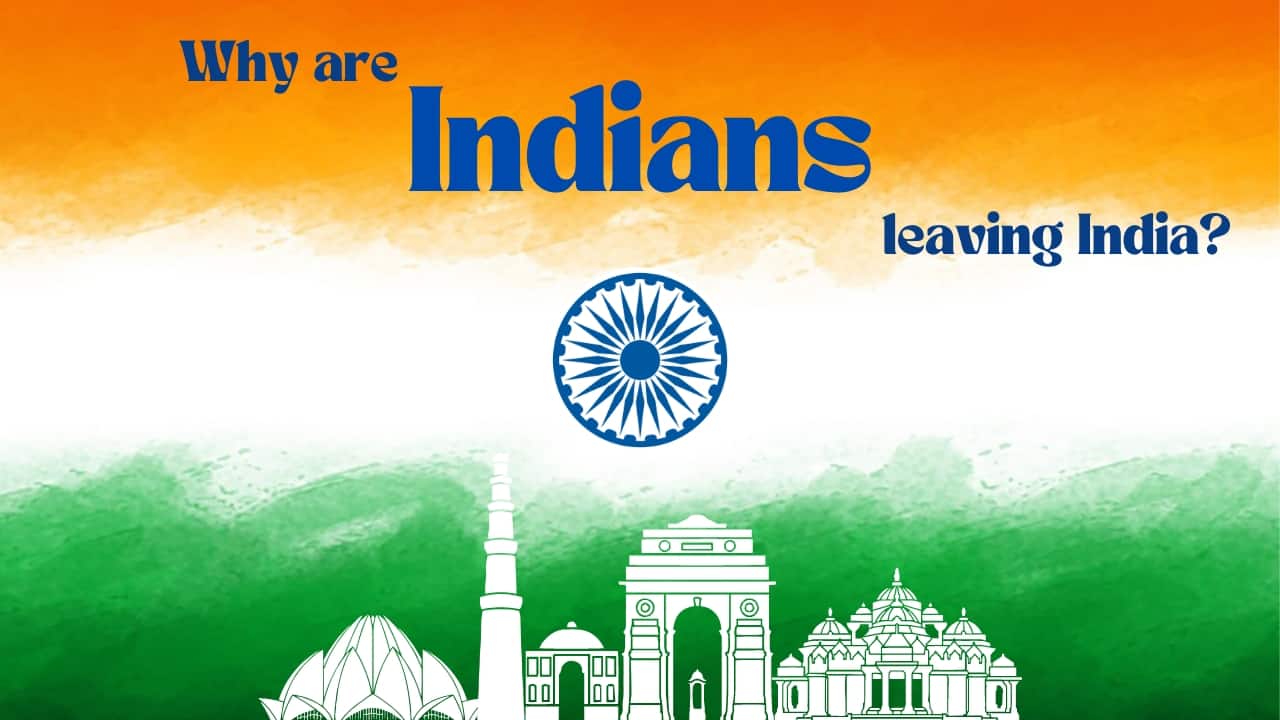Migration is a term coined along with the evolution of humans. Humans originated from Africa, as per a theory, and then migrated to various continents gradually. Countries across the globe have witnessed, from time to time, such migrations due to various reasons.
The Reasons Why Indians Leave India
Let’s find out why Indians are ahead of other countries’ citizens in this phenomenon and are leaving India.
Exploring since ages
Knowing Harappa as the world’s first civilization that marks its origin in India, Indians find navigation a mode of trade and cultural exchange.
Cholas were the first to have a navy, which helped them extend to Southeast Asia. Many temples in Cambodia, Thailand, Myanmar, Malaysia, and Indonesia are shining declarations of Indian inhabitation of those places.
These parts of the subcontinent could be acknowledged further by the Indian population. So, Indians left India for various purposes and reasons dating back to ancient times.
During medieval times when colonisation obstructed India, many Indians used to move to Europe and other continents for education as well as white collar jobs India at that time was in its hardest phase of history where mere survival with basic rights was even in dreams.
Also, Indians were traded off as enslaved people, laborers, and government employees to other continents by the colonizers. You can find lineages of such people existing in parts of America, Africa, Europe, etc.
By the time Britishers left India, the culture of shifting to other countries had become quite a trend.
Political instability
We witnessed a huge blow to our economy when India became independent in 1947. It came with the largest mass dislocation in human history, followed by massacres and loot, creating huge unrest followed by poverty and lack of job opportunities for the sections of the society.
That was a period of big political instability and resulted in the migration of Indians from India to stable locations to safeguard themselves and their families.
Such political unrest becomes part of a diversely huge democracy and is even tackled with wisdom, yet sometimes lack of trust in the government of that reign results in dislocation. However, these are in very rarest of percentages.
Unemployment
Another big factor about migration is unemployment. We have seen in all our censuses recorded ever since that population of our country has increased exponentially high, but the government isn’t able to create job opportunities in the same ratio to the population.
According to a report, persons applying for the post of a peon in government exams scale from 20,000 to 1-2 lakhs for just 4 to 14 seats only. These applicants are of qualifications up to post-graduate levels, whereas requirement criteria state only a high school certificate. Such is the situation of job ratio applicants in the Government sectors.
Work culture in India is a game changer for many.
Further, if the same applicant moves to the private sector for jobs, salary is like a drop of water in a camel’s mouth plus no job security. We witness a culture of layoff in big-shots firms and industries for the creamy layer. Just imagine the situation of those in the middle and lower tiers!
Add on is the work pressure as per the work culture in India. Indians and Indian managers are so engrossed in love with the concept of overtime that they tend to keep productivity two steps behind the number of hours in the office.
Well, this has been my personal experience as well. People who can sit in the office after working time even if those hours go unproductive and in boot, licking are considered auspicious gems of the organizations.
This kills motivation, and henceforth, people seek jobs outside India where they could be paid efficiently for their talent and only productivity in working hours.
Better opportunities and welcoming foreigners with luring offer by various countries.
As quoted before, for better opportunities, people often seek foreign countries and hand on luring offers from countries like Italy, Germany, Norway, Dubai, Poland, etc., where they lack a workforce for certain fields. I remember here the government of Italy paying people to settle into 2 of its towns which have remained deserted for a very long time. That was a luring scheme!
Better infrastructure facilities and lifestyle
We know we are a developing nation with many challenges due to our state’s diversified nature. Providing the best uniform infrastructure to all geographical locations is a long-term dream requiring gradual and thorough planning.
Though we have traversed a big milestone since independence, we are far from achieving this glorious dream. In search of better infrastructure and lifestyle, people migrate, not only to Indians but everywhere around the globe.
Brain drain has become a trend.
During the 1990s, the globalization and privatization phase, which became a pillar to the stability of the Indian economy, came an impactful brain drain trend, which never died during all these decades. Help this trend; the quota system played another major role. However, the quota system helped a few weak sections of society that are not in some lucrative ratio compared to its cons.
Culturally acceptable scenarios
Lastly, if countries are open and welcoming to foreigners for any reason, why wouldn’t one consider migrating to such a place, considering I face issues with the same topics back home? Though I believe in making and working for the progress of the homeland, why criticize contradictions?
